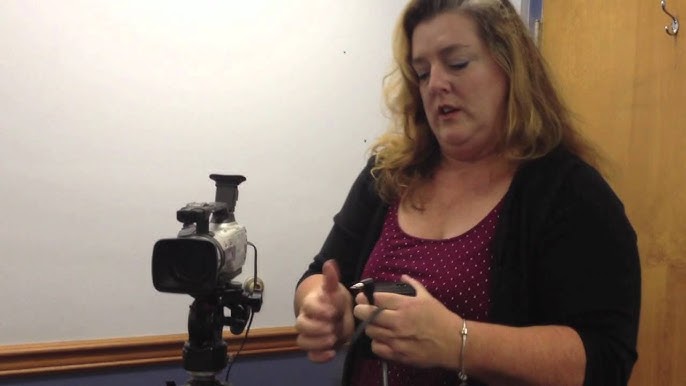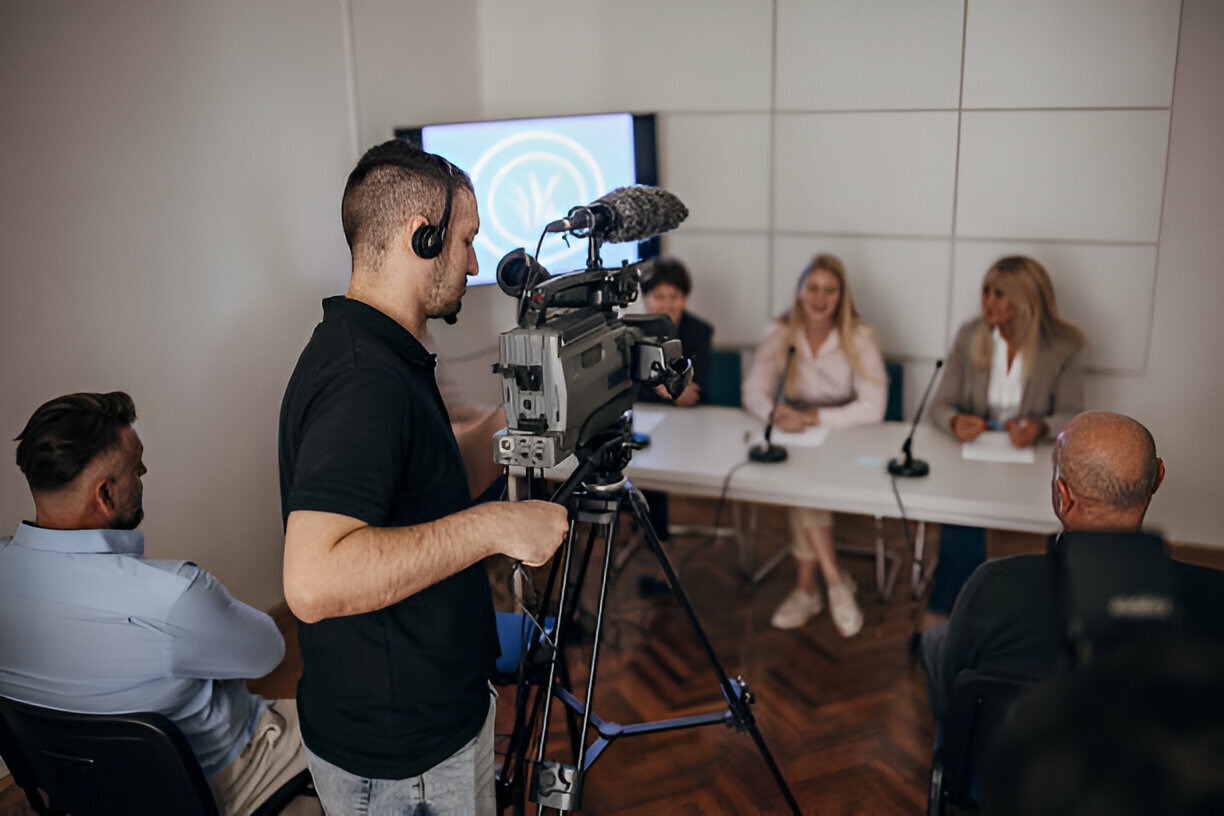FAQs about working with legal videographers: timelines, formats, equipment, and more
Exploring the Different Kinds Of Legal Videographers and Their Distinct Offerings
Legal videographers play an essential role in the judicial procedure, each specializing in unique facets of court room paperwork. Their experience ranges from catching witness testaments to boosting trial discussions. Recognizing the diverse offerings of these specialists can brighten their contributions to legal procedures. As the intricacies of modern-day litigation grow, the importance of their duties comes to be increasingly evident. What particular functions do these videographers offer, and how do they affect the outcomes of cases?
Understanding Legal Videography
Legal videography plays a crucial function in the judicial process, supplying aesthetic documents that can improve the clearness and precision of legal process. This specific field includes capturing video recordings of different legal occasions, such as trials, hearings, and other significant moments within the legal system. Legal videographers use sophisticated devices and methods to guarantee high-quality video footage, which can work as important evidence during litigation.Understanding legal videography calls for acknowledging its relevance in sharing details in an aesthetic layout. The tape-recorded video footage can aid courts and courts much better understand the context and nuances of statements and events, potentially affecting verdicts. Additionally, legal videographers must stick to rigorous guidelines and requirements to preserve the stability of the recordings. Their work not just help in protecting an in-depth account of proceedings but also adds to the general openness and responsibility within the legal structure, guaranteeing that justice is served efficiently.
Deposition Videographers
Deposition videographers play a vital function in legal process by tape-recording witness statements for future referral. They utilize specialized tools and techniques to assure high-quality video documents that precisely records the nuances of each deposition. Recognizing their techniques and the value of their work can improve the effectiveness of legal discussions.
Role in Legal Proceedings
While typically ignored, the role of videographers in legal procedures is important, especially throughout depositions. These specialists record witness testimonies, capturing both verbal and non-verbal cues that can be critical in court. Their recordings serve as an exact representation of the deposition, offering a reliable reference for attorneys and courts. Videographers ensure that the setting is expert, lessening distractions and adhering to legal requirements. They are educated to handle different situations, consisting of unanticipated interruptions or technological problems, guarding the stability of the tape-recorded product. In addition, the presence of a videographer can deter incredibly elusive behavior from witnesses, advertising more honest responses. On the whole, their payments greatly improve the clarity and performance of legal procedures.
Tools and Techniques Used
The equipment and strategies used by deposition videographers are important for producing high-quality recordings that accurately record witness testimonies. Professional-grade electronic cameras, often with 4K resolution, warranty clear visuals, while high-fidelity microphones capture sound without distortion. Videographers generally utilize tripods for stability and illumination devices to improve presence, especially in less-than-ideal settings. Strategies such as mounting the witness appropriately and preserving proper angles are vital for conveying body language and expressions. Lots of deposition videographers additionally use electronic editing software application to boost the last product, guaranteeing clearness and comprehensibility. Additionally, they might incorporate time-stamping and annotations during post-production to facilitate reference throughout legal proceedings, ultimately giving a thorough and trustworthy document of the deposition.
Test Discussion Videographers
Test presentation videographers play an essential function in court room settings by effectively picturing proof and improving the narration process. Using innovative modern technology and customized tools, they develop engaging presentations that help courts and courts realize complicated information. Their experience in reliable narration strategies further raises the impact of legal debates during tests.
Duty in Courtroom Setups
Frequently, legal videographers play a crucial function in court setups by capturing and providing visual proof that enhances the clearness of legal debates. These professionals focus on documenting witness statements, depositions, and crucial proof, making sure that the proceedings are properly tape-recorded for future recommendation. Their job not just aids in the prompt presentation of situations yet likewise functions as an important source during charms or testimonials. Trial discussion videographers meticulously compile and modify video footage to produce engaging visual stories that attorneys can use to convince discretionary. By integrating aesthetic elements into the test, they substantially contribute to the overall efficiency of the legal process, promoting an extra informed decision-making setting within the courtroom.
Technology and Devices Made Use Of
Modern trial discussion videographers rely upon innovative innovation and customized equipment to efficiently catch and existing evidence in the courtroom. High-def electronic cameras are usually used to ensure that every information is recorded with clearness, while multiple cam angles can enhance the visual narrative. Videographers regularly utilize wireless microphones to catch clear sound from witnesses and attorneys, decreasing diversions. In go to my site addition, sophisticated software program tools permit real-time editing and enhancing and seamless integration of video clips, images, and exhibits during presentations. Projectors and large displays are commonly used to display web content in an engaging manner, ensuring that jurors and courts can quickly follow the process. This mix of innovation and devices is essential for creating impactful courtroom presentations that assist in understanding and retention of details.
Efficient Storytelling Strategies
Recording top notch video and sound is simply the beginning for trial discussion videographers; efficient storytelling strategies play an essential role in communicating intricate legal stories. These experts employ numerous approaches to improve the clarity and impact of the product provided. By very carefully structuring the visual and audio components, they produce a coherent circulation that guides jurors with the truths of the instance. Making use of strategies such as thematic framing, sob story, and rational development, they highlight bottom lines and reinforce the overall disagreement. Additionally, incorporating visuals, such as diagrams or animations, can simplify intricate ideas and keep the audience engaged. Ultimately, trial discussion videographers transform raw footage right into engaging stories that resonate with web link jurors, promoting educated decision-making in the court.
Video Clip Proof Experts
Video proof specialists play an important role in the legal process, making certain that aesthetic recordings are properly caught, protected, and offered in court. These professionals are educated to manage a range of tape-recording equipment and strategies customized especially for legal settings. They concentrate on getting top quality recordings that can endure examination, adhering to rigorous procedures to keep the honesty of the evidence.Often entailed in the documentation of criminal activity scenes, depositions, and witness declarations, video proof professionals are proficient in producing footage that is both clear and reliable. They are likewise well-informed concerning legal criteria and requirements, guaranteeing that their job adheres to administrative guidelines. Furthermore, these experts may aid in the post-production process, modifying and format videos for best presentation. Their experience help attorneys in properly sharing their situations, making the function of video proof experts necessary in the quest of justice.
Court Videographers
While the court frequently works as the phase for critical legal proceedings, court videographers guarantee that these minutes are documented with precision and clearness. Their primary role is to capture all facets of a test, consisting of witness statements, opening up and closing declarations, and jury responses. Utilizing specialized equipment, courtroom videographers ensure that audio and video quality fulfill the standards needed for legal documentation.These specialists are skilled at working unobtrusively within the court room environment, steering through the necessary procedures and keeping the integrity of the legal process. They frequently collaborate carefully with lawyers to recognize details needs, ensuring that vital elements are tape-recorded for future reference.Furthermore, court videographers More about the author play an important function in preserving the authenticity of the process, supplying a vital source for allures or additional legal actions. Their know-how guarantees that all tape-recorded material acts as a reputable account of the court room occasions for all events included.

Post-Production Providers and Editing And Enhancing

After the court proceedings are tape-recorded, the emphasis shifts to post-production services and modifying, which play a significant duty in refining the captured product. Legal videographers utilize specialized software program to enhance video top quality, making sure clarity and professionalism and reliability. This phase usually includes shade improvement, audio improvement, and the removal of any type of additional video footage, producing a systematic narrative that aligns with legal standards.Additionally, videographers may integrate graphics, comments, or subtitles to offer context or emphasize vital info. The modifying process additionally entails organizing the video chronologically or thematically, making it much easier for legal groups to reference particular sectors throughout trials or depositions. Legal videographers usually prepare last edits in various layouts to suit different platforms and usages, making certain access for all stakeholders entailed. Eventually, efficient post-production services are necessary for generating top quality legal videos that support the case available.
Frequently Asked Concerns
What Credentials Should I Try to find in a Legal Videographer?

How Do Legal Videographers Ensure Video Top Quality and Reliability?
Legal videographers guarantee video clip quality and integrity via high-definition devices, cautious lights, and sound monitoring - legal videographers. They additionally stick to legal requirements, make use of backup systems, and conduct detailed pre-production preparation to reduce prospective concerns during recordings
What Tools Do Legal Videographers Typically Use?
Legal videographers normally make use of high-definition cameras, tripods for security, outside microphones for clear sound, and illumination tools to boost visibility. They might likewise use modifying software to ensure polished and professional final items for legal procedures.
The length of time Does the Editing Refine Generally Take?
The editing process for legal videographers usually varies, ranging from a couple of hours to several days. Factors such as video complexity, needed quality, and details client demands substantially affect the general time dedication required for completion.
Are Legal Videographers Familiar With Court Room Decorum?
Legal videographers normally possess a strong understanding of court etiquette - legal videographers. Their training typically includes understanding of correct behavior, tools placement, and regard for legal proceedings, ensuring their job lines up with the official ambience of the court